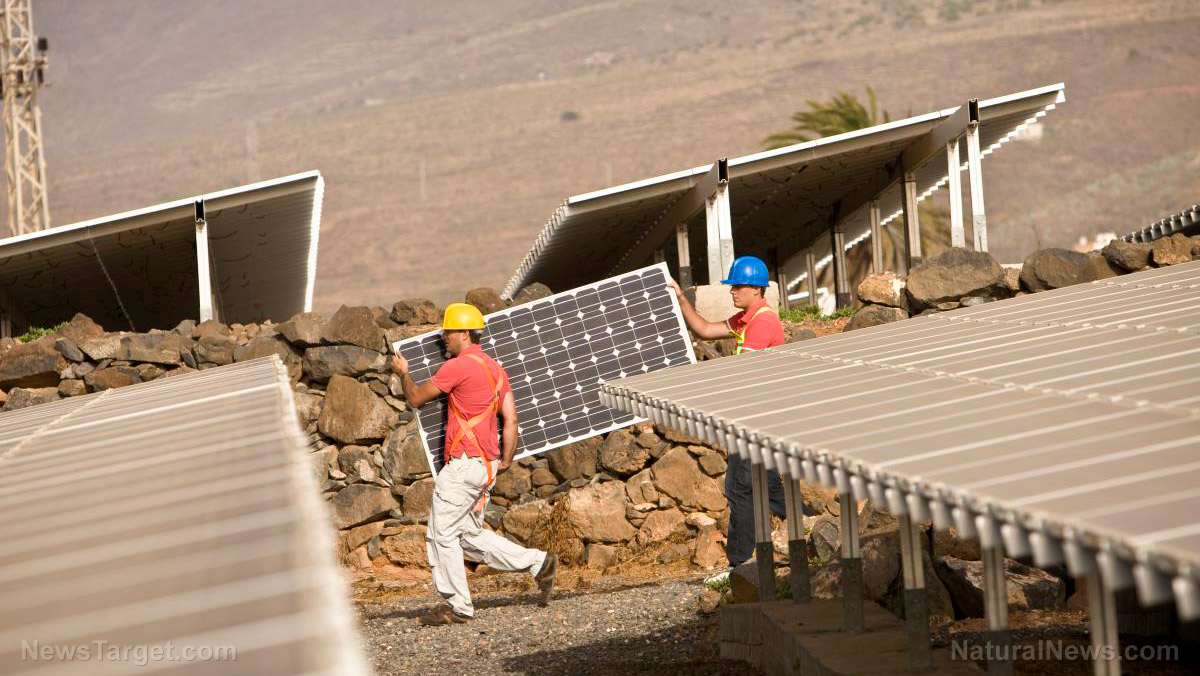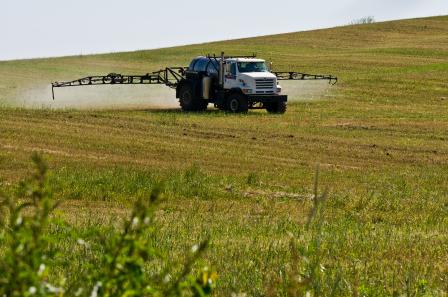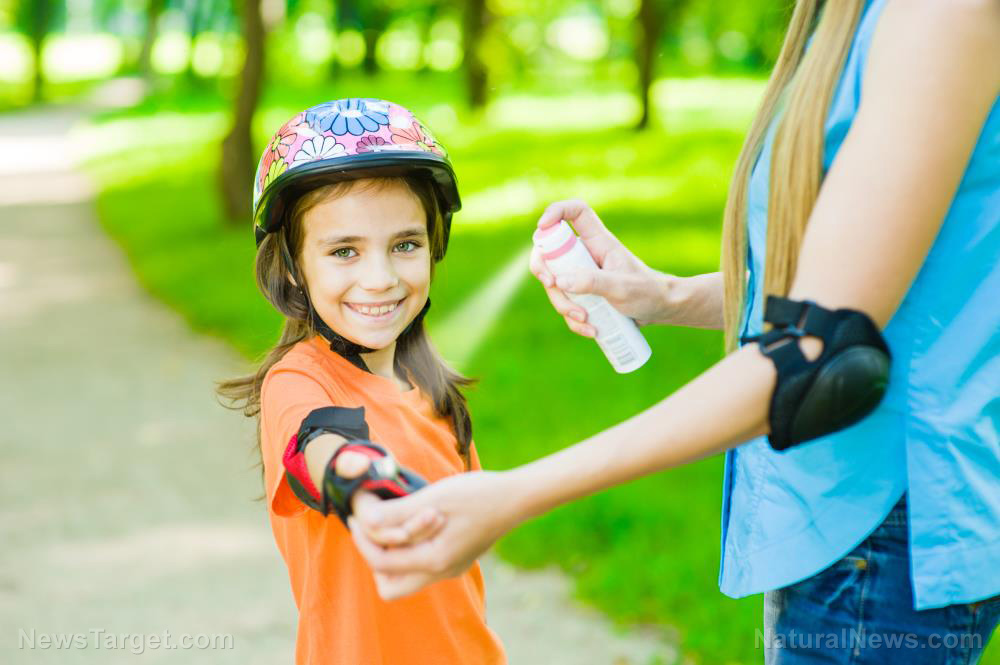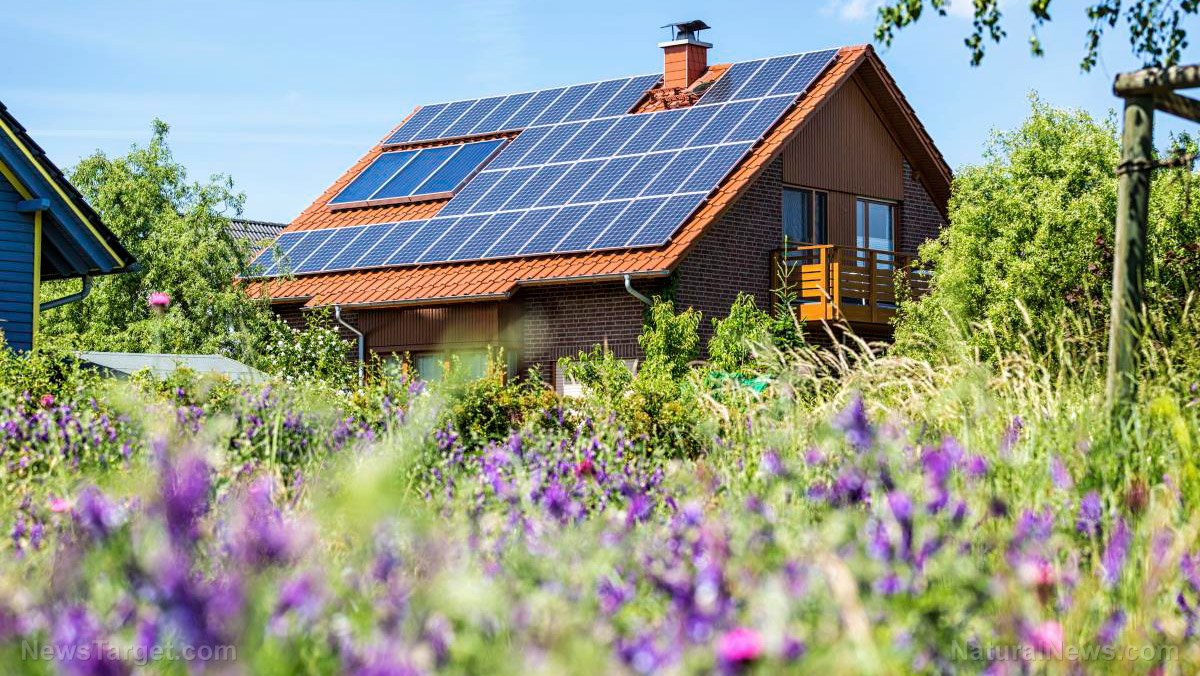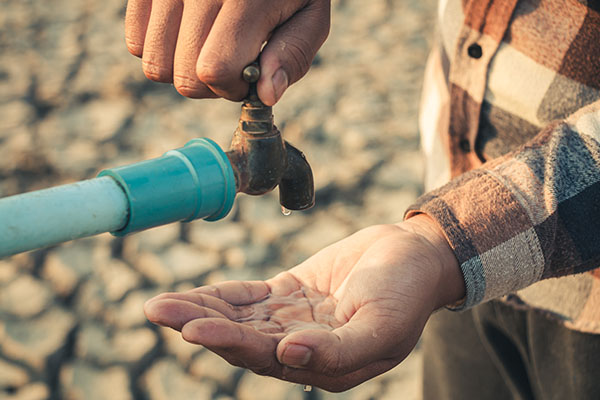A self-sufficient legacy: 12 Useful prepping skills to teach the next generation
07/12/2023 / By Zoey Sky

The prepping lifestyle requires hard work and discipline. If you have children, you can help them prepare before SHTF by starting them young and teaching them useful skills like gardening and cooking.
Instead of just letting them waste time on their smartphones and computers, teaching children useful skills can help them grow up into self-sufficient adults.
As a prepper, think about your life and list the practical prepping and survival skills you’ve learned as you got older. (h/t to TheEpochTimes.com)
These useful prepping skills can help your children become independent preppers before SHTF:
Animal husbandry
If you have experience caring for livestock, you can share your knowledge with your children or grandchildren.
Children are naturally drawn to animals, and learning how to care for other living creatures like chickens, ducks, goats or even honeybees can help teach them a sense of responsibility and compassion.
Teaching kids how to care for different kinds of animals can also help them understand the importance of meeting the needs of another creature and sensitivity toward its needs.
Cooking and baking
If children at home are old enough, you can also teach them simple recipes so they can start cooking and baking.
This useful life skill isn’t just good for an emergency scenario, it can help them as they get older because cooking meals at home is one way to save money on food and dining out.
Teach them some of your favorite recipes so they can cook these special dishes for their own families even after you are gone. Before SHTF, it can help to teach children and grandchildren basic cooking and baking skills like how to cook from scratch and bake a loaf of bread.
Not sure how to start? Here are some tips on how to teach kids of different ages how to cook and bake:
Children under three years old
Kids this age can be tricky because they’re still very young, but you can start fostering an appreciation of food and cooking by letting them help with simple tasks, like washing produce.
If your child wants to help, let them wash the fruits and vegetables. Have some clean towels ready, and let them try a salad spinner.
Kids aged three to five
Kids in this age bracket can start learning some simple knife skills. Make sure to keep things safe in the kitchen by giving them a dull knife.
A three-year-old can practice their knife skills by cutting soft foods like cucumbers or strawberries with a butter knife or a plastic knife.
Teach them how to hold a knife: By the handle only, and not touching the blade. Make sure they also know how to pass a knife from one person to another safely: Point the handle toward the person you’re passing it to, with the blade pointing away from them.
Kids aged six to eight
Kids in this age group can start with some actual cooking skills.
First, teach them the basics of using a stove, but always with your supervision. Let them practice turning the stove off and on.
Teach them how to cook scrambled eggs and other simple “recipes,” like sandwiches and salads.
Have a pot holder or dry dish towel ready in case you need to touch hot pan handles.
Kids aged eight to 10
Kids eight and older may be ready to handle a sharp knife, with supervision. Keep in mind that you are the best judge of your child’s readiness to handle sharp kitchen tools.
You can teach kids how to bread food, like veggies or chicken tenders in flour. Use this time to teach them how to fry food. If they want to help with meal planning, let them.
Gardening
Gardening takes time, patience and knowledge gained through the years of working in your garden.
Teaching kids how to care for a garden ensures that they also spend more time outdoors, under warm sunshine as they enjoy the fresh air.
You can also help them plant, grow and harvest their favorite vegetables.
You can avoid big messes by starting small. For example, you can teach younger children to plant and grow beans in cups placed near sunny windows.
If the children are older, you can help them grow a tomato plant in a pot on the patio.
Choose high-interest plants like cherry tomatoes, which are a tasty snack, or pumpkins, which you can carve by Halloween.
Heritage handicrafts
Not everyone is skilled in handicrafts like crocheting, embroidery, knitting or sewing, and these skills are some of the most useful ones you can teach young children.
As a bonus, these skills produce practical and beautiful results, and they also help improve hand-eye coordination and fine motor skills.
Other fun and useful crafts to try include herbal remedies, soap-making and woodworking.
Home repairs
Basic home repairs like painting a room or fixing a clogged sink or toilet aren’t taught in school, but these skills will be very helpful for young children.
Before you start, make a list of everything you know how to repair, typical home improvement projects and car maintenance.
Choose something that will interest your child, such as painting a room or repairing a bicycle, and ask them to help you. (Related: Basic survival and prepping skills that your kids should learn ASAP.)
Nature exploration
Teaching kids about the beauty of nature can also help them appreciate nature exploration activities like bird watching, nature walks and tree identification.
As you explore nature with your family, you can also try fun, educational activities like learning the difference between a squirrel and a chipmunk. These activities will help entertain your kids and teach them observation skills that are important for preppers.
Enjoying the beauty of nature and disconnecting from technology can help foster creativity and curiosity in your children.
Rugged outdoor skills
Exciting outdoor activities like camping, fishing, hiking and cooking over a campfire are great for children who love exploring nature.
Take some time off during weekends and teach your children how to forage for wild edibles while you are camping. With parental supervision, you can also teach them how to cook simple meals over a campfire, with adult supervision to keep them safe.
Using hand tools
Power tools are convenient, but if you want to help your children prepare before SHTF, it’s better to teach them how to use simple hand tools. Knowing how to handle tools like a hammer or a screwdriver is an important skill, especially if you want them to be more independent.
Children may struggle with hand tools at first, but teach them patiently so they can learn how much pressure and leverage to use with different tools. With enough practice, you can even help them with simple projects like a birdhouse or a small wooden stool for their playhouse.
Cultural traditions
Every child comes from a family with a rich heritage of multiple cultures, but not all of them learn about these traditions.
Share important traditions and stories and help pass them along to young children just as they were passed down to you by your parents and grandparents.
Sharing family roots, language, customs and holidays can help preserve them with the next generation.
Good manners and etiquette
This might seem obvious, but not everyone knows about basic good manners and etiquette.
Teach kids about the importance of having good table manners, and tell them to always say please and thank you.
Good manners never go out of style. These skills are subtle, but they make a lasting impression in social settings, at school or the office.
Musical skills
Passing on your musical skills can help children develop a passion for music. Teach them how to play an instrument you are familiar with, or help them learn an instrument that they are interested in.
You can also share your favorite albums and genres with them, like jazz or classical music. Music lessons can be expensive for some families, but lessons taught by a close friend or family member can help teach kids musical skills and help reinforce relationships.
Storytelling
When SHTF, you can entertain each other by telling stories.
Older people know many stories from their childhood, and these stories are too valuable to lose. Share them with children of all ages, until one day they are old enough to tell them to their children.
If possible, make a book of these stories shared among your family and illustrate them with your kids.
As a prepper, it’s easy to dismiss the value of your skills and experience, but sharing them with the next generation can help enrich their lives and prepare them for future emergency scenarios.
Watch this video about 11 herbs and vegetables you can grow at home with the help of your children.
This video is from the Backyard Farming channel on Brighteon.com.
More related stories:
Prepping with kids: What to teach them about natural disasters.
Tips for responsibly and safely foraging and hunting for food.
Survival essentials: 5 Bushcraft skills for preppers.
Sources include:
Submit a correction >>
Tagged Under:
bug out, children, green living, homesteading, how-to, off grid, preparedness, prepper, prepping, prepping skills, prepping with children, prepping with kids, SHTF, situational awareness, survival, survival skills, tips
This article may contain statements that reflect the opinion of the author
RECENT NEWS & ARTICLES
COPYRIGHT © 2017 GREEN LIVING NEWS


